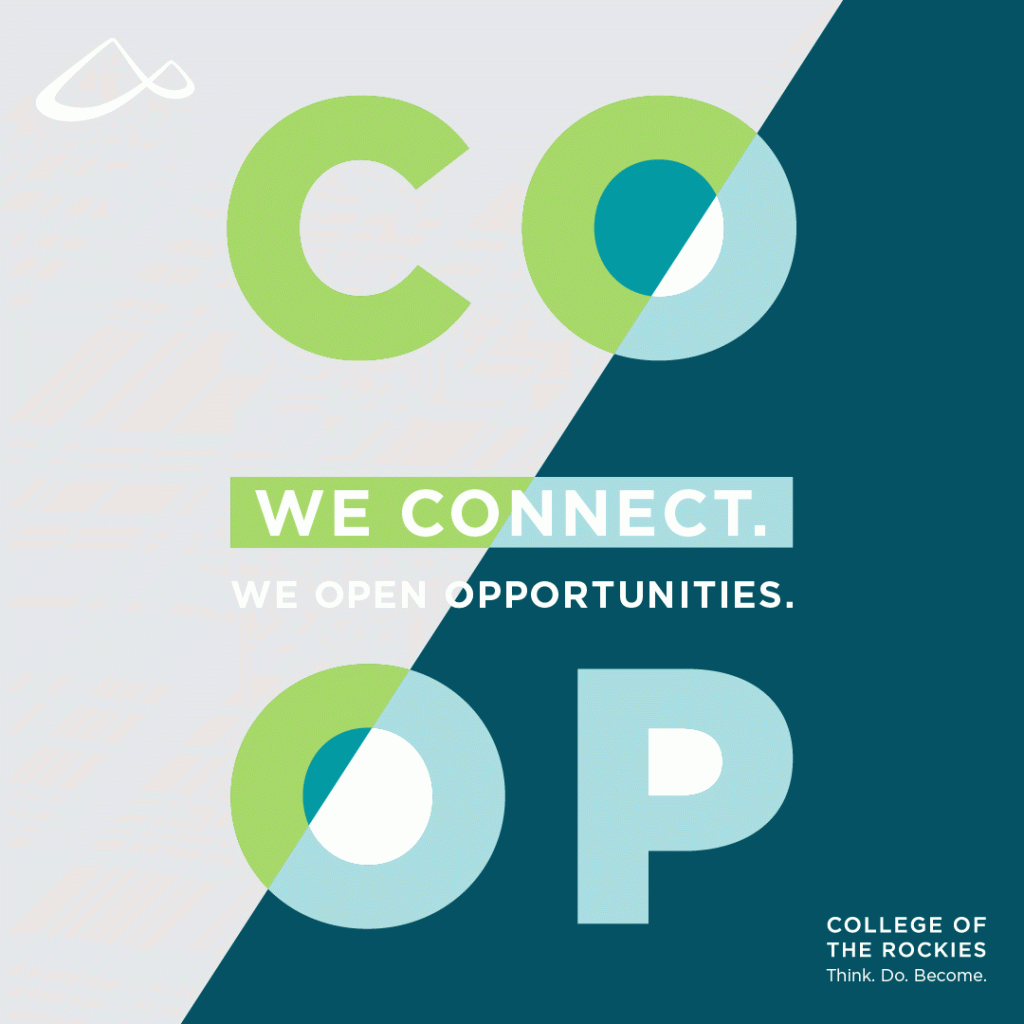Marketing
A Marketing diploma can lead to a variety of exciting and rewarding career paths, from the highly creative industries of advertising, web or graphic design to the analytical side with research and planning. Marketing is a vital component of any business and is a great option for anyone interested in using both creativity and facts to solve problems. Completion of the diploma prepares you to enter directly into Year 3 of the Bachelor of Business Administration in Sustainable Business Practices degree program or to transfer to a number of other certifications.
Program Overview
As with all of our Business Management programs, the Marketing diploma infuses sustainable business practice knowledge throughout your courses. Sustainability is a priority for many in today’s global business environment.
Marketing is a two-year diploma program which opens the door to career opportunities in the field of marketing, or prepares you to enter directly into Year 3 of the Bachelor of Business Administration in Sustainable Business Practices degree program at College of the Rockies which has additional flexibility of part-time, full-time, face to face, or online learning. This program is also ideal for mid-career professionals looking to diversify their skillset.
This program starts in September and January each year. Part-time students applying in the Spring semester should select University General Studies as their program when applying.
Note: Upon successful completion of all Year 1 courses, you can graduate with a Business Management Certificate.
Marketing Diploma Program Structure:
| Year 1 Fall Semester | Credits |
|---|---|
| ACCT 261 Introductory Financial Accounting 1 | 3 |
| MKTG 281 Principles of Marketing | 3 |
| ECON 101 Microeconomics | 3 |
| COMC 101 Technical and Professional Writing or ENGL 100 English Composition. Note: ENGL 100 may be required for degree-seeking students | 3 |
| MATH 101 Finite Mathematics 1 or MATH 111 Business Mathematics or MATH 103 Differential Calculus | 3 |
| Total | 15 |
| Year 1 Winter Semester | Credits |
|---|---|
| ACCT 262 Introductory Financial Accounting 2 | 3 |
| COMC 102 Advanced Professional Communication | 3 |
| COMP 154 Computer Applications in Business | 3 |
| ECON 102 Macroeconomics | 3 |
| STAT 106 Statistics | 3 |
| Total | 15 |
| Year 2 Fall Semester | Credits |
|---|---|
| MGMT 212 Business Law | 3 |
| ACCT 265 Managerial Accounting for Non-Accountants | 3 |
| MGMT 303 Business Ethics | 3 |
| MGMT 318 Research Methods | 3 |
| MKTG 283 Consumer Behaviour | 3 |
| Total | 15 |
| Year 2 Winter Semester | Credits |
|---|---|
| MGMT 316 Entrepreneurship and Small Business Management | 3 |
| MKTG 385 Strategic Marketing Management | 3 |
| MGMT 216 Organizational Behaviour | 3 |
| MKTG 289 Integrated Marketing Communications | 3 |
| MGMT 411 Business Management Review | 3 |
| Total | 15 |
Course Descriptions
Year 1 – Semester 1 – Fall
ACCT-261 – Introductory Financial Accounting 1
This course introduces students to the basic accounting cycle including preparation of useful financial statements. Students will analyze and record business transactions, create financial statements, and journal entries. Other topics include accounting for cash, receivables, inventory, and payroll.- Minimum Credits: 3
- Length: 45 hours
- Prerequisites: Either English Studies 12, English First Peoples 12, ENGL 090, or equivalent. Minimum 60% in either MATH 080, MATH 082, Workplace Mathematics 11, Foundations of Mathematics 11, Pre-Calculus 11, Apprenticeship Mathematics 12, Foundations of Mathematics 12, Computer Science 11, Computer Science 12, Pre-Calculus 12, Statistics 12, Geometry 12, or equivalent.
- Delivery Method: ? On-campus, Online
- Cost: $365.28
- Course Outline
MKTG-281 – Principles of Marketing
This course defines and examines the marketing process as it applies to marketing products and services in public, private and not-for-profit organizations. Students gain insight into the complex and interdependent variables involved in developing successful marketing strategies. Through case studies, online discussion, simulation, and in class activities, students will plan a marketing strategy for a specific target audience taking into consideration current trends in product mix, communications, and technology.
- Minimum Credits: 3
- Length: 45 hours
- Prerequisites: Either English Studies 12, English First Peoples 12, ENGL 090, or equivalent.
- Delivery Method: ? On-campus, Online
- Cost: $365.28
- Course Outline
ECON-101 – Microeconomics
This course deals with the economic principles that govern the individual segments of the economy. Topics include supply and demand, price elasticity, utility, cost of production, perfect and imperfect market structures, theory of production, the demand for factors, and the pricing of factors. Some current business situations are discussed.
- Minimum Credits: 3
- Length: 45 hours
- Prerequisites: Minimum of 60% in either MATH 080, Foundations 11, Pre-Calculus 11, Essentials 11, Applications 11, Principles 11, Computer Science 11, Computer Science 12, Foundations of Math 12, Pre-Calculus 12, Statistics 12, Geometry 12, or equivalent.
- Delivery Method: ? On-campus, Online
- Cost: $365.28
- Course Outline
ENGL-100 – English Composition
English 100 focuses on composition strategies for writing across academic disciplines. Over the course of the term, students will develop an awareness of how rhetorical situations affect composition and refine their understanding of the fundamentals of essay writing (and clear communication more broadly), including paragraphing, thesis statements, essay structure, and citation methods. Students will also learn the fundamentals of critical thinking and analysis, persuasive writing techniques (including rhetorical appeals and modes), scholarly research, and academic reading.
- Minimum Credits: 3
- Length: 45 hours
- Prerequisites: Minimum 65% in either English 12, English Studies 12, English First Peoples 12, ENGL 090, or equivalent.
- Delivery Method: ? Blended, On-campus, Online
- Cost: $365.28
- Course Outline
COMC-101 – Technical and Professional Writing
In this introductory course, students develop practical writing skills for the workplace. Activities centre on effective writing styles and offer detailed guidelines on planning, organizing, composing and revising documents for a range of communication tasks. This course reviews some grammar essentials and leads students to be resourceful and successful communicators in traditional and virtual correspondence.
- Minimum Credits: 3
- Length: 45 hours
- Prerequisites: Minimum 65% in either English Studies 12, English First Peoples 12, ENGL 090, or equivalent.
- Delivery Method: ? On-campus, Online
- Cost: $365.28
- Course Outline
Choose one (1) of the following MATH courses:
MATH-101 – Finite Mathematics 1
This course is intended for students who require an appreciation of higher mathematics, but don’t require calculus. MATH 101 stresses a logical and critical thinking approach while investigating the following topics: an introduction to matrices and to linear algebra; linear programming and the Simplex method; set theory, counting techniques and probability; and introduction to statistics; and Markov Processes.
- Minimum Credits: 3
- Length: 45 hours
- Prerequisites: Either a minimum grade of 65% in one of Foundations 11, Pre-Calculus 11, Applications 12, Principles 11, or MATH 080; or Foundations of Math 11 and 70% or higher in Foundations of Math 12; or Pre-Calculus 12; or Calculus 12; or minimum grade of 65% in both Statistics 12 and Computer Science 12.
- Delivery Method: ? On-campus, Online
- Cost: $365.28
- Course Outline
MATH-111 – Business Mathematics
This course emphasizes the mathematics required in general business processes. It begins with a brief review of arithmetic and algebra. These skills are then applied to business situations requiring the use of percentages, markup, simple interest and compound interest. The emphasis is on applied business mathematics and the use of a hand-held business calculator. This course is designed to prepare students for the mathematical and analytical applications required in subsequent business and economics courses.
- Minimum Credits: 3
- Length: 45 hours
- Prerequisites: Minimum of 60% in either MATH 080, Pre-Calculus 11, Foundations of Math 11, Applications of Math 11, Principles of Math 11, Computer Science 11, Computer Science 12, Foundations of Math 12, Pre-Calculus 12, Geometry 12, Statistics 12, Calculus 12, MATH 100, or equivalent.
- Delivery Method: ? On-campus, Online
- Cost: $365.28
- Course Outline
MATH-103 – Differential Calculus
This course is intended for students who are pursuing a Bachelor of Science degree. Topics include: functions, limits, continuity, derivatives, their interpretation, differentiation rules, techniques of differentiation, implicit differentiation, inverse functions, exponential functions, logarithms, applications of differentiation such as linear approximations, Newton’s method, related rates, analysis of graphs, and optimization, and the Mean Value Theorem. Calculus is a necessary step in any career in the sciences including Biology, Chemistry, Commerce, Computer Science, Engineering, Geology, Mathematics, Medicine, and Physics. It is also useful in any field which uses Statistics to analyze data.
- Minimum Credits: 3
- Length: 60 hours
- Prerequisites: Either a minimum of 65% in Math 090, Math 100, or Principles 12; or Pre-Calculus 11 AND Pre-Calculus 12 with a minimum of 65%; or Pre-Calculus 12 and a minimum of 75% in Calculus 12.
- Delivery Method: ? Blended
- Cost: $365.28
- Lab Fees: $83.73
- Total: $449.01
- Course Outline
Year 1 – Semester 2 – Winter
COMC-102 – Advanced Professional Communication
Emphasizing the link between research, rhetorical analysis and effective communication, this course provides an exploration of business writing techniques, presentation styles and research methodologies essential for success in business environments. Students will also gain an understanding on how design and visual elements enhance the readability and persuasiveness of communication practices. Practical application of concepts in real-world scenarios will be a key focus, with the aim of developing a sophisticated and effective communication skill set.
- Minimum Credits: 3
- Length: 45 hours
- Prerequisites: ENGL 100 or COMC 101
- Delivery Method: ? On-campus, Online
- Cost: $365.28
- Course Outline
COMP-154 – Computer Applications in Business
This course examines information systems theory and utilizes computer technology. Students will explore the application of technology in organizations. Students will investigate information systems, evaluate organizational needs, and develop effective solutions. Security, legal and ethical issues will be examined along with characteristics of professional administration. Microsoft Office applications, including Word, Excel, PowerPoint, Access and Outlook, will be utilized to create effective business artifacts and fulfill organizational needs.
- Minimum Credits: 3
- Length: 75 hours
- Prerequisites: Familiarity with Microsoft Office and basic computing skills, or COMP 153 are recommended.
- Delivery Method: ? On-campus, Online
- Cost: $365.28
- Lab Fees: $83.73
- Total: $449.01
- Course Outline
ECON-102 – Macroeconomics
This course presents the economic principles that govern the behaviour of the nation’s economy. Topics include production possibility, supply and demand, national income analysis, money and banking, fiscal and monetary policy, and international trade. Current Canadian economic problems are discussed.
- Minimum Credits: 3
- Length: 45 hours
- Prerequisites: Minimum of 60% in either MATH 080, Foundations 11, Pre-Calculus 11, Essentials 11, Applications 11, Principles 11, Computer Science 11, Computer Science 12, Foundations of Math 12, Pre-Calculus 12, Geometry 12, Statistics 12, Geometry 12, or equivalent.
- Delivery Method: ? On-campus, Online
- Cost: $365.28
- Course Outline
STAT-106 – Statistics
This course introduces the fundamental ideas of statistics and can be applied to any discipline. Topics include: collection, description, and presentation of data; calculating central tendency and dispersion; probability and statistical inference; hypothesis testing (means, proportions, variances, one and two samples); correlation and regression; decision making and sampling, Goodness of Fit Tests, and Contingency Tables.
- Minimum Credits: 3
- Length: 60 hours
- Prerequisites: A minimum of 60% in either Principles of Math 11, Foundations of Math 11, Applications of Math 11, Pre-Calculus Math 11, Statistics 12, Pre-Calculus 12, Calculus 12, MATH 080, or MATH 101; or a minimum grade of 65% in either Foundations of Math 12, Geometry 12, or Computer Science 12; or any grade in Foundations of Math 11 and 70% or higher in Foundations of Math 12; or a minimum grade of 60% in MATH 111.
- Delivery Method: ? On-campus, Online
- Cost: $365.28
- Lab Fees: $83.73
- Total: $449.01
- Course Outline
ACCT-262 – Introductory Financial Accounting 2
This course is a continuation of ACCT 261. This course includes capital assets, liabilities, partnerships, corporations, cash flow, and financial statement analysis.
- Minimum Credits: 3
- Length: 45 hours
- Prerequisites: A minimum grade of C- (55%) in ACCT 261.
- Delivery Method: ? On-campus, Online
- Cost: $365.28
- Course Outline
Year 2 – Semester 1 – Fall
MGMT-212 – Business Law
In this course, the underlying principles and rules of common law are examined together with applicable statute law. Torts are studied, including the making of contracts, their effect and completion; agency; legal forms of business; contracts of employment; sale of goods; negotiable instruments; methods of securing debt; and bankruptcy law.
- Minimum Credits: 3
- Length: 45 hours
- Prerequisites: Either English 12, English Studies 12, English First Peoples 12, ENGL 090, or equivalent.
- Delivery Method: ? On-campus, Online
- Cost: $365.28
- Course Outline
ACCT-265 – Managerial Accounting for Non-Accountants
This course is specifically designed for non-accounting majors. This course studies accounting and finance from a managerial perspective. Topics include profitability analysis, cost volume profit analysis, relevant costing, cost allocation, profit planning and cost management, responsibility accounting, capital investments, financial statement analysis, cash flow statements, sources and forms of financing and working capital management.
- Minimum Credits: 3
- Length: 45 hours
- Prerequisites: A minimum grade of C- (55%) in ACCT 261 or ACCT 263
- Delivery Method: ? On-campus, Online
- Cost: $365.28
- Course Outline
MGMT-303 – Business Ethics
This course provides an overview of Canadian business and its interrelationships with society. Course material covers current issues and ethical challenges faced in the world of work, providing the student with practical tools, methods and resources that encourage ethical behavior in and out of the workplace. Concepts covered include stakeholder management, corporate social responsibility and managing ethics from a business and managerial perspective.
- Minimum Credits: 3
- Length: 45 hours
- Prerequisites: A minimum grade of C- (55%) in either ENGL 100 or in COMC 101.
- Delivery Method: ? On-campus, Online
- Cost: $365.28
- Course Outline
MGMT-318 – Research Methods
This course introduces students to the basics of research methods needed in business and other fields. Students gain an understanding of the importance of business research to managers through providing accurate information for decision making. Students gain insight through analysis of several case studies and a group or individual business research project.
- Minimum Credits: 3
- Length: 45 hours
- Prerequisites: A minimum grade of C- (55%) in ENGL 100 or in COMC 101, and a minimum grade of C- (55%) in both COMP 154 and MKTG 281 MKTG 281 can be taken previously or concurrently. Corequisites: STAT 106
- Delivery Method: ? On-campus, Online
- Cost: $365.28
- Course Outline
MKTG-283 – Consumer Behaviour
This course is a study of the many influences on the consumer’s purchasing decisions. Topics covered include economic, demographic, cultural, social, and reference group influences. The emphasis is on understanding the customer, the concepts underlying target marketing and market segmentation.Students study case studies and advertisements and evaluate how businesses attempt to influence the behaviour of individuals. Students will apply these concepts to contemporary marketing situations through a series of simulation assignments.
- Minimum Credits: 3
- Length: 45 hours
- Prerequisites: A minimum of C- (55%) in MKTG 281
- Delivery Method: ? On-campus, Online
- Cost: $365.28
- Course Outline
Year 2 – Semester 2 – Winter
MGMT-316 – Entrepreneurship and Small Business Management
This course introduces the students to the basics of entrepreneurship and small business management. Students gain an understanding of how to establish and manage a small business. An essential part of the course is the students’ development of research and analysis skills. The application of the knowledge is demonstrated by the student completing a business plan.
- Minimum Credits: 3
- Length: 45 hours
- Prerequisites: A minimum grade of C- (55%) in ACCT 261 or ACCT 263; A minimum grade of C- (55%) in MKTG 281; and A minimum grade of C- (55%) in ENGL 100 or COMC 101 or COMC 110. Corequisites: ACCT 261 or ACCT 263 and MKTG 281 may be taken as a corequisite.
- Delivery Method: ? On-campus, Online
- Cost: $365.28
- Course Outline
MKTG-385 – Strategic Marketing Management
This course helps students gain an advanced view of strategic marketing, planning and management. This course is intended to expand the students’ understanding of how to identify marketing alternatives and make sound marketing decisions through an interactive simulation.
- Minimum Credits: 3
- Length: 45 hours
- Prerequisites: A minimum grade of C- (55%) in either ENGL 100 or in COMC 101; and a minimum grade of C- (55%) in MKTG 281.
- Delivery Method: ? Online
- Cost: $365.28
- Course Outline
MGMT-216 – Organizational Behaviour
In this course students can discover and apply concepts to both explain and influence how people and their organizations work. Specific topics include motivation, perception, personality, emotions, communication, team dynamics, decision making, conflict and negotiation, power and organizational politics, leadership, organizational change and development, organization, and culture.
- Minimum Credits: 3
- Length: 45 hours
- Prerequisites: Either English 12, English Studies 12, English First Peoples 12, ENGL 090, or equivalent.
- Delivery Method: ? On-campus, Online
- Cost: $365.28
- Course Outline
MKTG-289 – Integrated Marketing Communications
The purpose of this course is to gain an overview of the marketing communications process as it applies to marketing in organizations. Using case studies, a simulation, and other aspects of the marketing mix, students gain experience with Integrated Marketing Communications (IMC) strategies to understand the interrelationships between business performance and marketing communications.
- Minimum Credits: 3
- Length: 45 hours
- Prerequisites: A minimum of C- (55%) in MKTG 281
- Delivery Method: ? On-campus, Online
- Cost: $365.28
- Course Outline
MGMT-411 – Business Management Review
This is an intensive capstone course intended to pull together all the subjects covered in the Business Administration Diploma Program. This course is designed to involve the student in running a business in a team environment and to show how it all comes together by utilizing a computerized business simulation. Students design and present a business plan to a board of directors; make operating, financial, marketing and human resource decisions; and prepare business reports.
- Minimum Credits: 3
- Length: 45 hours
- Prerequisites: Completion of at least three semesters (15 courses) towards diploma; this course is taken in final semester before graduating with a diploma.
- Delivery Method: ? On-campus, Online
- Cost: $365.28
- Course Outline
Admission Requirements
Academic Requirements:
- Secondary school graduation or equivalent.
- Minimum 65% in either English Studies 12, English First Peoples 12, ENGL 090, or equivalent.
- A minimum grade of 60% in either Foundations of Math 11, Precalculus 11, Statistics 12, Pre-Calculus 12, or Calculus 12 or a minimum grade of 75% in Foundations of Math 12, Geometry 12, or Computer Science 12.
Experience using Microsoft Word and Excel is recommended.
Students for whom English is a second language must meet the College’s English Language Proficiency Requirements.
Students may commence certain courses in the program while they upgrade.
Your Costs
Tuition and Fees for Domestic Students:
For the 2024/25 academic year (2024/SU, 2024/FA, 2025/WI, 2025/SP)
| Tuition Year 1: | $3,652.80 |
| Tuition Year 2: | $3,652.80 |
| Application Fee: | $30.00 |
| Student Association Fee: | $138.00 |
| Bus Pass Fee: | $177.60 |
| Lab Fee: | $167.46 |
| Health and Dental Fee: | $480.00 |
| Total | $8,298.66 |
*These prices are for domestic students and may not be 100% accurate. However, these estimates will give you an adequate idea of tuition and fees for our programs. These prices do not include textbook costs. All prices are subject to change. Tuition fees include an alumni fee, student activity fees, and a student technology fee. In certain cases a materials and supply fee may also be included. For more information, visit: Tuition and Fees.
Tuition and Fees for International Students:
For the 2024/25 academic year (2024/SU, 2024/FA, 2025/WI, 2025/SP)
| Tuition Year 1 | $15,864.90 |
| Tuition Year 2 | $15,864.90 |
| Application Fee | $100.00 |
| International Fee | $100.00 |
| Student Association Fee | $138.00 |
| Bus Pass Fee | $177.60 |
| Lab Fee | $167.46 |
| Health and Dental Fee | $480.00 |
| Guard.me Insurance: | $270.00 |
| Total | $33,162.86 |
*These prices are for international students and may not be 100% accurate. However, these estimates will give you an adequate idea of tuition and fees for our programs. These prices do not include textbook costs. All prices are subject to change. Tuition fees include an alumni fee, student activity fees, and a student technology fee. In certain cases a materials and supply fee may also be included. For more information, visit: Tuition and Fees.
Career Info and Pathways
Be involved in the planning and implementation of marketing strategies for:
- Commercial and industrial business
- Professional and Not-for profit organizations
- Public Relation (PR) firms
- Government agencies
- Cities and municipalities
- Hotels, resorts and clubs
- Tourism sector
- Educational institutions
Your Marketing diploma, combined with additional education open the doors to potential careers including:
- Professional Occupations in Advertising, Marketing, and Public Relations
- Advertising, Marketing, and Public Relations Manager *
- Business Development Officer / Market Researcher / Analyst
- Senior Manager – Public and Private Sector *
- Corporate Sales Manager *
* High Opportunity Occupation
Marketing Diploma – Block Transfer Agreements
| To Institution | Program | |
|---|---|---|
| College of the Rockies | Bachelor of Business Administration | Transfer Planning Form |
| Capilano University | Bachelor of Business Administration Note: Applicants must meet Capilano University’s School of Business admission requirements and Capilano University’s admission and general English Language requirements. | Transfer Agreement |
| Royal Roads University | Bachelor of Arts in Professional Communication Note: Individual assessment required. In addition you must complete English 100 with a B or greater. | Transfer Agreement |
| Thompson Rivers University | Bachelor of Business Administration (International Business, General, Entrepreneurship, Marketing or Human Resource Management) Note: Graduations GPA is 2.0 minimum. | Transfer Agreement |
| University of Lethbridge | Post-Diploma Bachelor of Management Note: Graduates will be guaranteed admission if their diploma GPA is 3.0 or higher. | Transfer Agreement |
| University of Northern British Columbia | Bachelor Of Commerce Note: Requires individual assessment. For additional information about this transfer visit BC Transfer Guide website |
Celebrating Our Alumni
Program Details
Delivery Method:?
Blended, On-campus, Online
Credential:
Diploma
Categories:
Block Transfer Agreements with Other Institutions, Business, Finance & Accounting, Tourism, Recreation & Hospitality, University Studies
Interests:
Adventure, Start or Run Your Own Business
Contact Details
Cranbrook
2700 College Way,
Box 8500, Cranbrook, BC, V1C 5L7
Phone: 250-489-2751
Toll-free: 1-877-489-2687
Email: info@cotr.bc.ca



